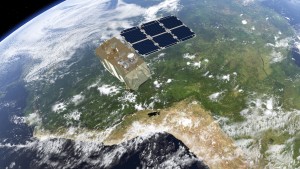
The European Union and India signed a cooperation arrangement agreement Monday forging significant earth observation links to combat climate change and provide environmental security.
“The European Commission and India’s Department of Space (DoS), have decided to sign an arrangement with the aim to strengthen and stimulate cooperation on Earth observation and mutual access to the data from the EU’s sentinel series of satellites and from the Indian earth observation satellites,” the statement said.
Under this arrangement, the European Commission will provide India with free, full, and open access to the data from the Copernicus Sentinel family of satellites using high bandwidth connections from data hub to data hub, it said.
Reciprocally, the DoS will provide the Copernicus programme and its participating states with a free, full, and open access to the data from ISRO’s earth observation satellites, including historical data sets. The Indian Space Research Organisation has developed an ambitious and wide-ranging earth observation programme.
It is intended that ISRO’s satellite data would be made available for distribution on the European ‘Copernicus hub’ — which includes land, ocean and atmospheric series of ISRO’s civilian satellites (Oceansat-2, Megha-Tropiques, Scatsat-1, SARAL, INSAT-3D, INSAT-3DR) — with the exception of commercial high-resolution satellite data.
The Copernicus programme provides a wide range of applications including climate change, land, ocean, and atmosphere monitoring, as well as support in forecasting, management, and mitigation of natural disasters. Its full, free, and open data policy has proven its merits by allowing the development of a thriving user base in Europe and beyond, according to the statement.
This agreement follows a similar recent agreement between the EU and Brazil, Chile, and Columbia, which was signed earlier this month, and EU arrangements already in place with the United States and Australia.


